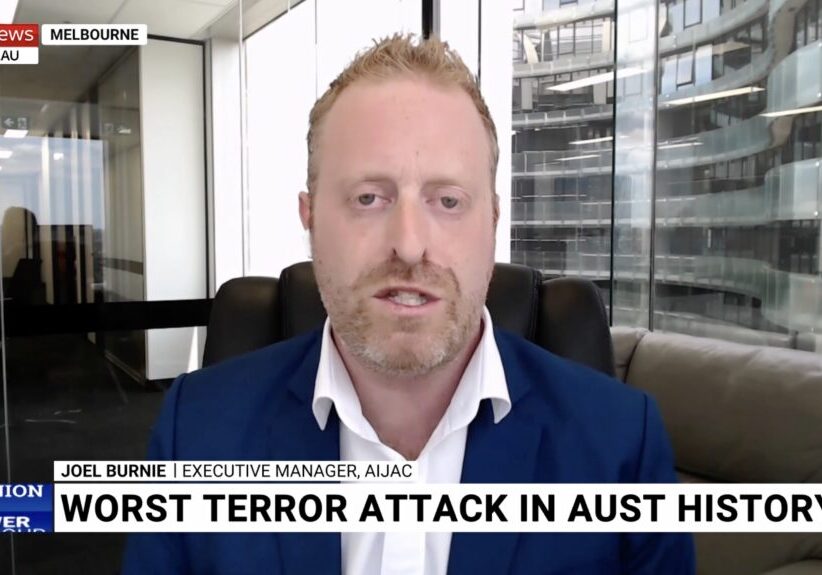Australia/Israel Review
Collateral Damage
Jun 30, 2010 | Amotz Asa-El
Amotz Asa-El
Nothing, wrote children’s author Kenneth Grahame, is “half so much worth doing as simply messing about in boats.”
The organisers of the Turkish-led flotilla that stirred waves from Iran to Egypt would surely agree, only they were writing no children’s book, and their game, while played on water, was with fire.
There is general agreement here that Israel has made mistakes before and during its navy’s May 31 fatal clash with the flotilla’s main vessel some 100 kilometres into the Mediterranean, southwest of Tel Aviv. However, there is also general agreement that the broader picture is about tectonic movements that Israel in no way caused, and whose damage it must prevent.
In the narrow military sense, the IDF concedes it walked into an ambush, when it landed a minimally armed and vastly outnumbered commando squadron into a mob wielding iron bars, axes, clubs, and knives. The subsequent battle, which left nine of the boat’s 600 passengers dead and eight of the 50 commandos who confronted them wounded – caught Israel off guard militarily, politically and strategically.
The military failure, Israeli experts generally agree, was not in terms of the battle’s management once it had erupted. On the contrary, for a small unit that boarded the ship incrementally with the naïve plan of paintballing a crowd of presumably non-violent activists, the troops’ performance was actually impressive. The speed, poise and efficiency with which they shifted to battle mode were proof that the IDF’s naval commando is as resourceful and well trained as he is widely assumed to be. The problem was in the intelligence.
In this regard, the skirmish served as a reminder that the Navy has little experience confronting civilians and dealing with the media. Meanwhile, the Mossad spy agency failed to learn in advance details about the people and equipment the boats were carrying.
Since the working assumption was that the flotilla was non-violent, the Foreign Ministry’s preparation was also inadequate. The IDF’s own footage of how the soldiers were attacked upon arrival on the vessel by well-prepared, pre-supplied and battle hungry combatants, took a full day to reach the media. By then, the breaking-news coverage in the big international TV networks and websites had forged the impression that the IDF, without provocation, shot dead innocent demonstrators out to deliver medication to Gaza.
The morning after the mayhem, the IDF, the Navy, the Mossad, and the Foreign Ministry began studying their mistakes, regardless of foreign expectations. The politicians, at the same time, were pressured by many in the international community, from the White House to the European Union and the United Nations, to set up a commission of inquiry. Bearing in mind the precedent of the damage wrought by the now famously partial Goldstone Report, the government appointed an investigative panel, headed by retired Supreme Court Justice Yaacov Turkel and comprising in addition to him retired diplomat and international-law expert Shabtai Rosen, and Maj.-Gen. (res.) Amos Horev, who after an illustrious military career served as president of the Technion, Israel’s leading technological university. Intent to avoid foreign criticism of impartiality, the Government also appointed two foreign observers: Northern Irish Nobel Peace Prize laureate David Trimble, and Brig.-Gen. (ret.) Keneth Watkin, a former Advocate General of the Canadian military.
Even so, down in the field the “Flotilla Affair” impacted in more ways Israel doubtfully foresaw. In Iran and Lebanon, new cruises were being announced, and down in Gaza, Israel yielded to international pressure and greatly eased its partial blockade of commercial traffic into the Strip.
While it remains to be seen just how much day-to-day reality in Gaza will have changed in the wake of the flotilla affair, there is no doubt that besides human fatalities, the affair left behind some political and strategic casualties as well.
On the personal level, the most politically damaged person is Defence Minister Ehud Barak. Perhaps the best indication of his new vulnerability is the Labor leader’s abandonment, soon after the flotilla affair, by his longtime loyalist Binyamin Ben-Eliezer, himself a former party leader and defence minister. Joining in already widespread criticism of Barak as a poor team-player, Ben-Eliezer publicly attacked him for failing to consult the security cabinet before ordering the attack. Much more ominously, he openly launched a campaign for Barak’s replacement as party leader by the chairman of the Histadrut labor union federation, Ofer Eini.
The major political question that arose the morning after the skirmish in the Mediterranean was the decision-making process that preceded it. While it is clear that the 15-member security cabinet was not consulted, it isn’t clear how deeply the more senior, seven-minister forum, with which Prime Minister Binyamin Netanyahu regularly brainstorms, was privy to the operation’s details. Equally unclear is the extent to which Netanyahu – who was in Canada during the clash – was himself abreast of the attack’s details.
Netanyahu for now emerges from the situation not quite as wet, so to speak, as Barak, who cannot claim to have been away from the country or uninvolved in the operation’s planning. More than any other politician, he was in the thick of it.
Now, having antagonised many during years of individualistic leadership, as well as a lavish lifestyle that many in Labor find unbecoming, the 69-year-old Barak may find his political fortunes sinking irrevocably. The problem is not primarily that the operation went awry, but that it merely highlighted Barak’s ongoing failure since entering politics 15 years ago to become a politician and statesman, rather than a general in civilian clothes.
For his part, Barak’s goal right now is to ignite a diplomatic process with either the Palestinians or the Syrians, a development that would likely silence most of his opponents within Labor. To promote this, he hopes to capitalise on Netanyahu’s quest to preserve the alliance he forged with Barak and Labor last year.
Even so, having coped with the fierce diplomatic backlash they faced the morning after the battle, Netanyahu and his Defence Minister could find that even if they manage to preserve Barak’s career in general, and his alliance with Netanyahu in particular, they may still have to replace Foreign Minister Avigdor Lieberman. That can be accomplished by bringing into their coalition the main opposition faction, the centrist Kadima Party, and restoring its leader Tzipi Livni to the position she held until last year’s election.
Lieberman’s removal in general, and his replacement with Livni in particular, would likely improve Israel’s image, and may possibly also stimulate peace talks. And even if all this proves more elusive than currently meets the eye, it would still be useful in terms of addressing the most somber aspect of the entire Flotilla Affair: Turkey.
While most of the other negative repercussions were arguably containable had more caution and preparation been deployed in advance, Turkey’s behaviour is generally seen in Israel as premeditated and alarming.
Prime Minister Recep Erdogan has long been verbally hostile to Israel as part of a broader foreign policy that is apparently driven by disillusionment with the West and a proto-Ottoman infatuation with the East. This is unconnected with anything Israel said or did, and it began hardly two weeks after Erdogan took office in Spring 2003, when he had the Turkish Parliament derail a previous American understanding with Ankara that the invasion of Iraq would include a Turkish bridgehead.
His subsequent hammering at the military, judiciary, media and constitution, gradually added up to a grim picture of a massive retreat from the secularist legacy of Ataturk. On the narrow Israeli front, this meant consistent provocations, including a public attack on Israeli President Shimon Peres, in his presence, at Davos, that was later followed by manufactured grievances about ostensible delivery failures of Israeli military hardware. The retreat from the strategic alliance with Israel has now culminated in an attack that many in Israel suspect Erdogan personally masterminded. While this has yet to be proven, there is no doubt that in siding with Hamas, Hezbollah, and Sudan’s Omar Bashir, Erdogan has at least inspired the Islamist group whose obviously preplanned attack on Israel had little to do with Israel’s policies.
Relations with Turkey have clearly reached a turning point. What began with the establishment of consulates in 1949 and last decade evolved into an open strategic alliance is clearly over, giving way to low key and tense relations, at best.
The Israeli public’s reflexive response to the crisis has been to shun the Turkish resorts which in recent years became for them what the Catskills once were for New York’s Jews. After having peaked earlier this decade at more than 500,000 annual visitors, Israeli tourism to Turkey will next summer probably have all but disappeared. No one wants to vacation in a country where the leader deems you and your leaders murderers and liars. And so, Israelis are now seeking, and easily finding, cheap vacation packages in alternative nearby markets like Cyprus, Bulgaria, Greece, Romania and Serbia – all, incidentally, historic enemies of the Turks.
Turkey is not an enemy of Israel. If anything, it is one nationality that has historically shunned antisemitism, and its attitude toward Israel has ranged from accommodation to admiration and also elaborate cooperation. However, its current vehemence toward Israel and embrace of Mahmoud Ahmadinejad, Khaled Meshal and Bashar al-Assad leave not only Israel, but also many across the Arab world, uneasy about Turkey’s new designs. That is why Israel finds that while relations with Turkey approach an ice age, Egypt is quietly coordinating policies with Israel, particularly concerning the Gaza Strip, whose radicalisation the Mubarak regime sees as a threat to its own stability.
The mess, in short, is big indeed, and its fountainhead lies in Turkey. Historian of the Middle East Bernard Lewis reportedly said recently that when the world finally sees Iran shed its Islamism it may have to cope with Turkey shedding its secularism. Should that transpire, future historians will likely agree that the flotilla affair and its aftershocks were indeed harbingers of a new Middle East.
Tags: Islamic Extremism






